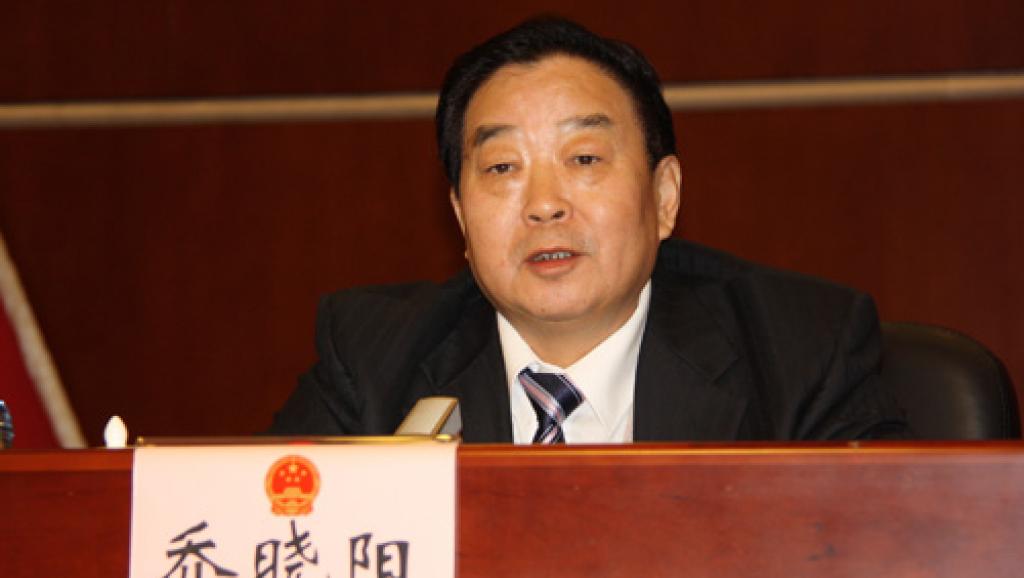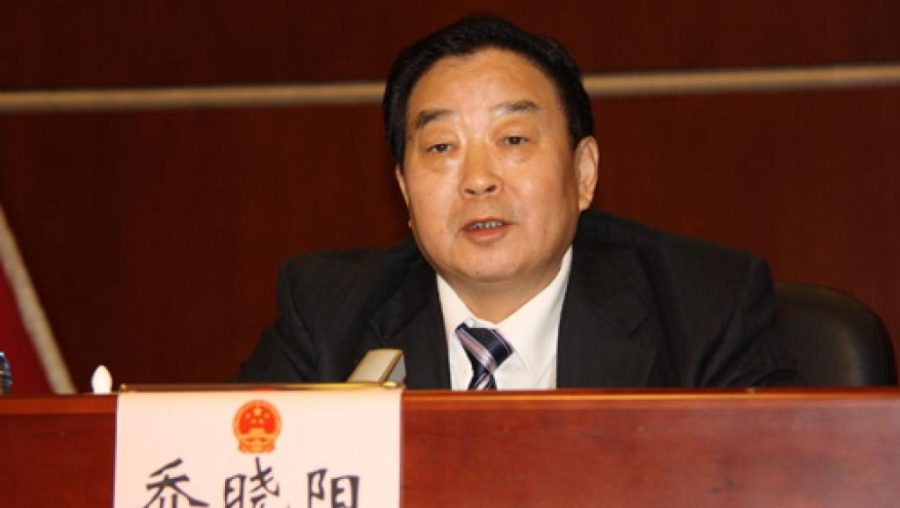The former chairman of the Law Committee of the National People’s Congress (NPC), Qiao Xiaoyang, said Thursday the local government needed to draft supplementary laws and regulations to ensure the more effective enforcement of the local national security law – the Law on the Defence of National Security.
The Law Committee, one of the 10 special committees under the NPC, was renamed as the Constitution and Law Committee in March, when Qiao was succeeded by Li Fei.
Qiao made the remarks on the sidelines of a seminar jointly organised by the Macau Legal Workers Association and Friendship Association of Macau Members of Provincial Committees of the Chinese People’s Political Consultative Conference (CPPCC).
Lawmaker-cum lawyer Vong Hin Fai, the president of the Macau Legal Workers Association, introduced Qiao to the audience which included community leaders, legal professionals and lawmakers.
Macau Legislative Assembly (AL) Vice President Chui Sai Cheong, the chairman of the Macau Legal Workers Association, addressed the seminar.
The one-day seminar was about the relationship between the nation’s Constitution and Macau Basic Law.
Last month, Central People’s Government Liaison Office in Macau Director Zheng Xiaosong urged Macau to improve its legal system to ensure the more effective enforcement of the local national security law.
Secretary for Security Wong Sio Chak told reporters last month that the government would study the drafting of supplementary laws and regulations which would assist in the enforcement of the local na-tional security law.
The local Law on the Defence of National Security was enacted in 2009, based on the Article 23 requirement of the Macau Basic Law.
Wong noted at that time that the local national security law is merely a framework law on the protection of national security in Macau.
The existing Law on the Defence of National Security lists the seven crimes on endangering national security stated by Article 23 of the Macau Basic Law and their penalties.
The seven crimes, according to Article 23 of the Macau Basic Law, are treason, secession, sedition, subversion against the central government, theft of state secrets, political activities by foreign political organisations or bodies, and the establishment of ties by political organisations or bodies in Macau with foreign political organisations or bodies.
Wong pointed out last month that the local national security law does not specify detailed procedures concerning the enforcement of the law, and neither does it mention any specific government entities tasked with enforcing the law.
One week after Wong’s remarks, Legislative Assembly (AL) President Ho Iat Seng told reporters that the legislature was studying possible amendments to the local national security law.
When asked by reporters about possible amendments to Macau’s local national security law proposed by the local government, Qiao said that while Macau has enacted its Law on the Defence of National Security as a framework law on the protection of national security, supplementary laws and regulations should be drafted to “support” the complete fulfilment of the Article 23 requirement of the Macau Basic Law.
Qiao said he knew that both the local government and legislature “are studying the matter”.
Meanwhile, Qiao also said during thes seminar that Macau´s civil society needed to further deepen its understanding of the powers held by the central government for its jurisdiction over the city.
Qiao noted that many controversies in Hong Kong have been about the administrative relationship between the central government and the Hong Kong Special Administrative Region (HKSAR) since the latter’s establishment in 1997, particularly concerning the scope of the powers held by the central government.
Qiao acknowledged that while Macau has very much respected the powers held by the central government, local citizens still needed to further deepen their understanding of the central government’s powers vis-à-vis Macau.
Qiao underlined that the nation’s Constitution clearly states that China is a unitary state, adding that the Macau Special Administrative Region (MSAR) is, consequently, a local administrative region within a unitary state.
Qiao said that local administrative regions within the ambit of the unitary state do not have “intrinsic” powers and that they can only exercise the powers that the central government has delegated to them.
Qiao, 72, came to Macau in March when he delivered a speech during a seminar marking the 25th anniversary of the promulgation of the Macau Basic Law, which was passed by the NPC on March 31, 1993 and promulgated by the nation’s then president Jiang Zemin on the same day. The Macau Basic Law took effect on December 20, 1999 when the MSAR was established.
Qiao was a member of the Hong Kong SAR Preparatory Committee and Macau SAR Preparatory Committee.






